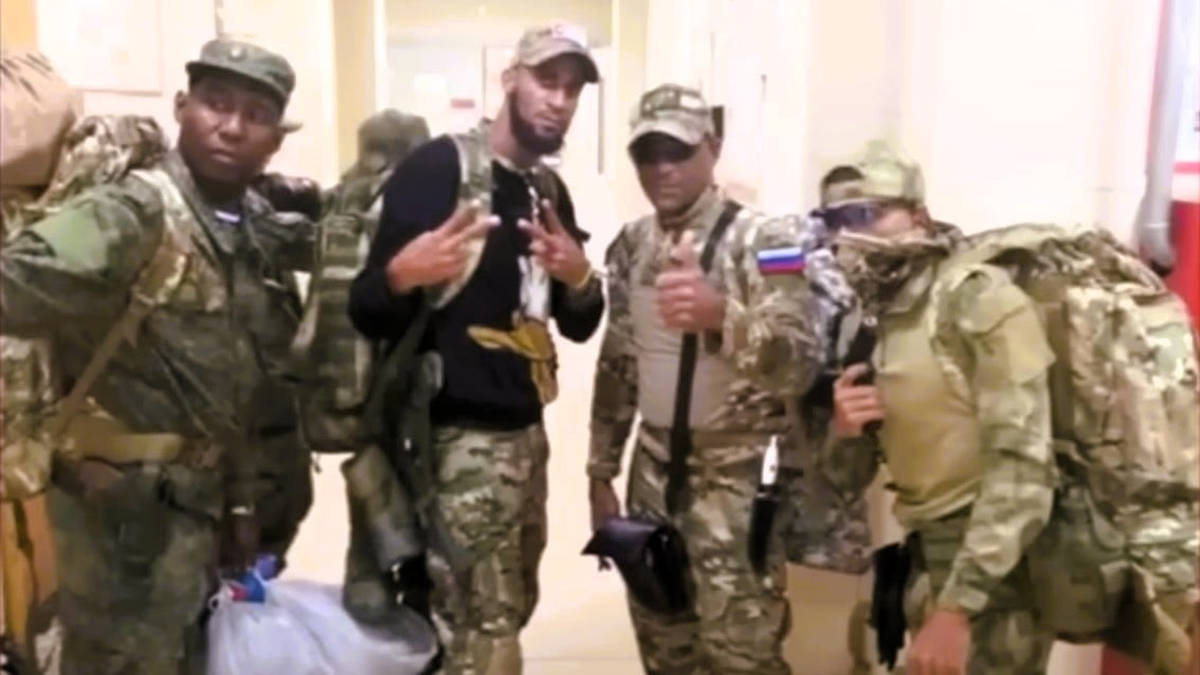Cubans recruited by the Russian Army to fight in Ukraine.
Picture:
Supplied
The United States is privately warning diplomats that Cuba has become one of Russia’s biggest sources of foreign fighters in Ukraine, with as many as 5,000 Cubans now serving alongside Moscow’s forces, according to an internal State Department cable.
The unclassified document, dated 2 October, instructs American diplomats around the world to lobby against a United Nations resolution calling for an end to Washington’s decades-long embargo on Cuba.
The Trump administration’s strategy, the cable says, is to “demonstrate opposition” to the resolution by highlighting Havana’s alleged role in supporting Russia’s invasion of Ukraine.
“After North Korea, Cuba is the largest contributor of foreign troops to Russia’s aggression, with an estimated 1,000 to 5,000 Cubans fighting in Ukraine,” the cable states.
US diplomats have been told to warn foreign governments that Cuba’s support for Moscow represents a direct threat to regional and global stability.
Officials at Cuba’s UN mission did not respond to requests for comment, while a State Department spokesperson told Reuters that “the Cuban regime has failed to protect its citizens from being used as pawns in the Russia-Ukraine war.”
The push marks a significant escalation in Washington’s campaign to isolate Havana at the UN, where the annual vote against the US embargo routinely passes by overwhelming margins. Last year, 187 countries backed the motion, with only the United States and Israel voting against it.
Since returning to office in January, President Donald Trump has intensified sanctions on the Communist-run island, reinstating Cuba on the US list of state sponsors of terrorism, tightening financial and travel restrictions, and penalising third-country nationals who host Cuban medical workers.
The administration has also hardened its stance toward Moscow, authorising US intelligence sharing with Ukraine and threatening new financial penalties against buyers of Russian oil.
Russian President Vladimir Putin, met with Cuban President Miguel Diaz-Canel in May 2025.
Picture:
Alamy
The State Department cable argues that the UN resolution “incorrectly blames the United States for Cuba’s problems,” which it attributes instead to Havana’s “own corruption and incompetence.” It instructs diplomats to secure “no” votes where possible, but says abstentions or absences would also be “useful” in reducing the resolution’s margin of victory.
For decades, Washington has sought to counter the resolution by emphasising humanitarian exemptions for food and medicine and by citing Cuba’s human rights record. The new campaign adds a more explosive claim: that Cuba is now a direct military backer of Russia’s invasion.
Reports of Cuban nationals fighting in Ukraine have circulated for months. Kyiv has warned US lawmakers that Moscow is expanding its recruitment of Cuban mercenaries, offering them financial incentives and promises of Russian citizenship. Havana insists it has no involvement, describing the fighters as victims of “human trafficking networks.”
Alongside Cuba, U.S. officials have pointed to North Korea’s growing military support for Moscow. Pyongyang has supplied artillery shells and short-range missiles to Russian forces, and Western intelligence suggests limited deployments of North Korean personnel to Russian-occupied territories. Together, they form what analysts describe as a small but symbolic “foreign legion” propping up Vladimir Putin’s war.
Tensions are also rising in the Caribbean, where Washington has carried out strikes on suspected Venezuelan drug boats. The US cable accuses Havana of “undermining democracies in the Western Hemisphere” through its alliance with Venezuela, while Cuban Foreign Minister Bruno Rodríguez last week urged the UN to “stop the United States from starting a war in the region,” calling US anti-drug operations a “crude and ridiculous pretext for aggression.”
The United Nations vote, expected later this month, will again be largely symbolic. Only the US Congress can end the Cold War-era embargo, now entering its seventh decade.
But the diplomatic clash over Cuba’s alleged role in Russia’s war highlights how old geopolitical rivalries are reshaping the battle lines of the Ukraine conflict far beyond Europe.
